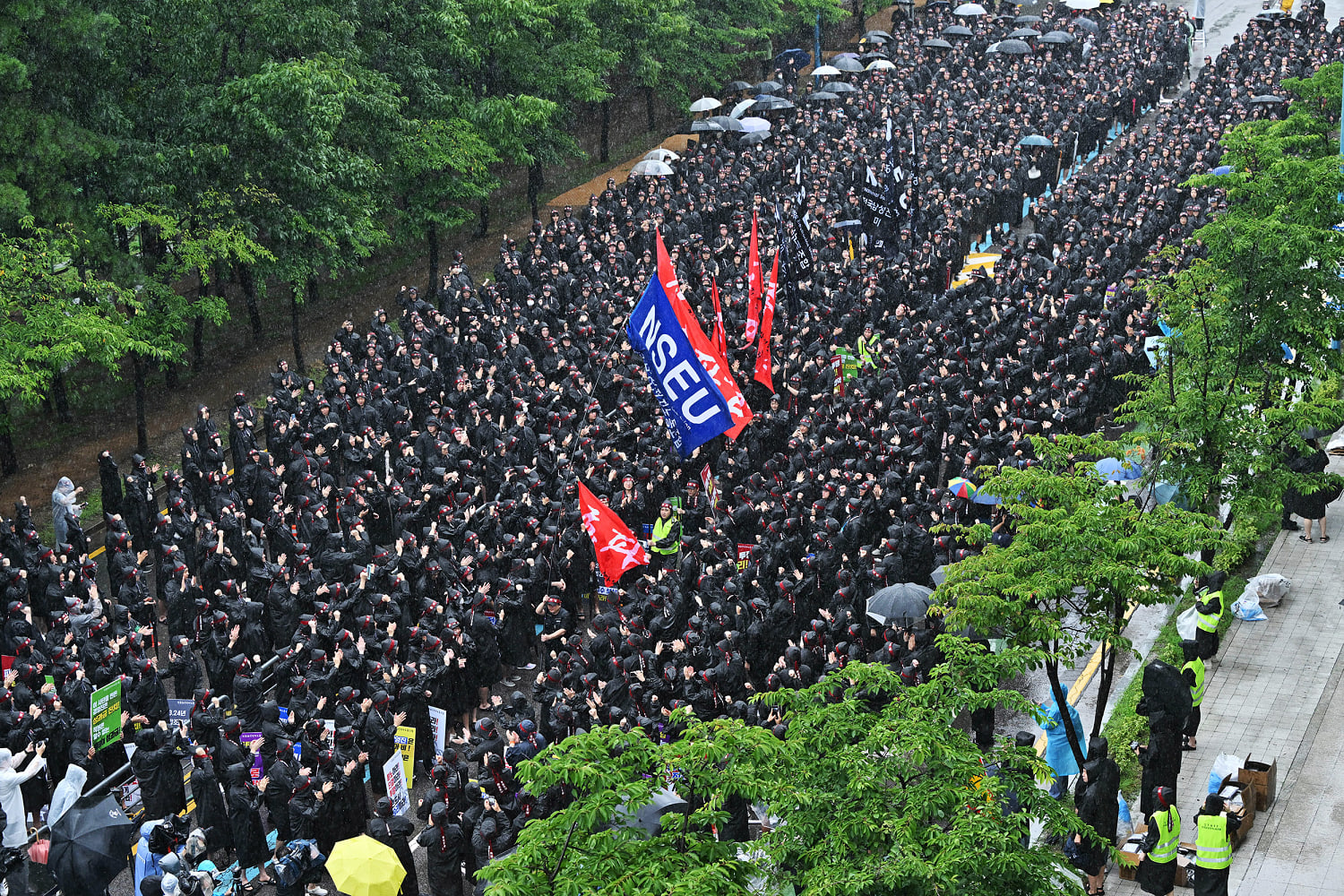
That would represent only a fraction of Samsung Electronics’ total workforce, estimated at about 267,860 globally. About 120,000 of them are in South Korea.
Earlier this year, union members and management held rounds of talks on the union’s demand for higher wages and better working conditions, but they failed to reach agreement. In June, some union members collectively used their annual leaves in a one-day walkout that observers said was the first labor strike at Samsung Electronics.
About 30,000 Samsung workers are reportedly affiliated with the National Samsung Electronics Union, the largest at the company, and some belong to other, smaller unions.
In 2020, Samsung chief Lee Jae-yong, then vice chairman of the company, said he would stop suppressing employee attempts to organize unions, as he expressed remorse over his alleged involvement in a massive 2016 corruption scandal that removed the country’s president from office.
The company’s union-busting practices had been criticized by activists for decades, though labor actions at other businesses and in other sectors of the society are common in South Korea.
Thousands of South Korean medical interns and residents have been on strike since February, protesting a government plan to sharply increase medical school admissions.







